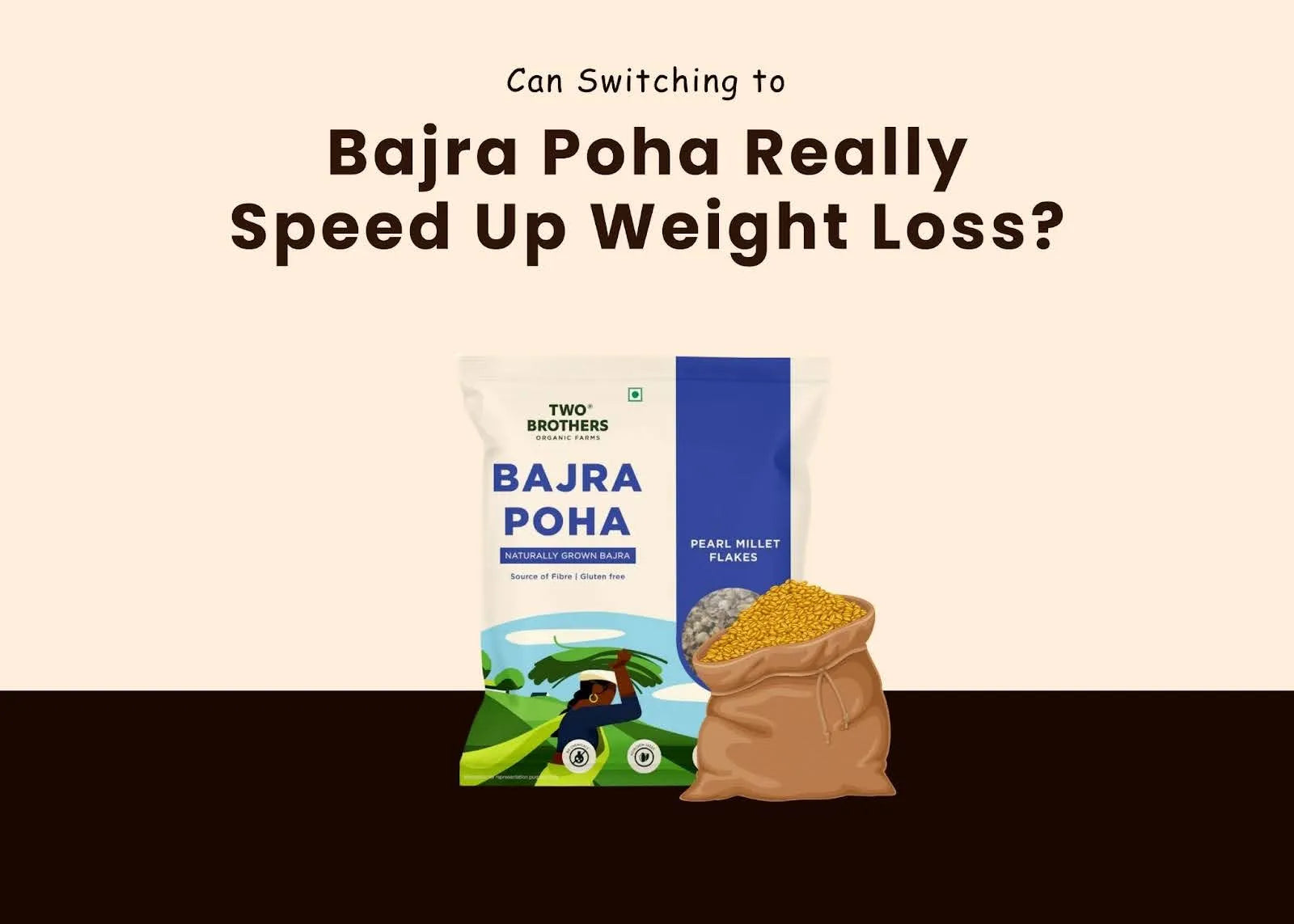Can You Really Gain Weight Safely with Diabetes?
Picture walking into a room where everyone talks about losing weight, while you're sitting there wondering how to add a few healthy pounds to your frame. Sound familiar? If you're managing diabetes and struggling to maintain or gain weight, you're not alone. The journey feels isolating, confusing, and sometimes overwhelming.
While most conversations around diabetes focus on weight loss, many people with diabetes struggle with the opposite challenge, gaining weight in a way that doesn't spike blood sugar or compromise health.
What foods can help a diabetic gain weight? The key lies in choosing nutrient-dense, whole foods that provide calories without causing dramatic blood sugar swings. How can I gain weight as a diabetic? The strategy involves combining healthy fats, lean proteins, complex carbohydrates, and timing your meals thoughtfully.
Why Does Weight Gain Matter for Some Diabetics?
Before we jump into the food list, let's talk about why weight gain might be necessary. Uncontrolled diabetes can cause weight loss because your body isn't using glucose effectively for energy. When cells can't access sugar from the bloodstream, your body starts breaking down muscle and fat for fuel instead.
Being underweight with diabetes can mean:
- Lower energy levels throughout the day
- A weakened immune system makes you prone to infections
- Difficulty maintaining stable blood sugar levels
- Loss of muscle mass affects strength and metabolism
- Increased risk of bone density issues
The best diet for diabetics to lose weight gets plenty of attention, but what about those who need to gain? The same principles of balanced nutrition apply; you're just adjusting portions and calorie density while maintaining blood sugar control.
The 10 Best Foods for Healthy Weight Gain with Diabetes
1. Fatty Fish: Your Omega-3 Powerhouse
Wild-caught salmon, sardines, and mackerel bring more than just calories to your plate. A 6-ounce serving of salmon delivers roughly 350 calories along with heart-healthy omega-3 fatty acids that reduce inflammation and support cardiovascular health. Grill it with herbs, bake it with lemon, or add it to your morning scrambled eggs.
2. Full-Fat Dairy: Nature's Nutrient Package
Whole milk, full-fat yogurt, and traditional cheeses provide calcium, protein, and vitamin D. A cup of whole milk has about 150 calories and 8 grams of protein. But here's where tradition meets nutrition: A2 Desi Cow Ghee from grass-fed cows contains butyric acid that supports gut health and helps regulate blood sugar. Unlike regular ghee, A2 ghee is easier to digest and has been a cornerstone of Indian wellness practices for centuries.
3. Ancient Grains: Slow-Burning Energy
Quinoa, brown rice, and traditional millets like little millet and nachni (finger millet) offer complex carbohydrates that release energy gradually. One cup of cooked quinoa provides 220 calories, 8 grams of protein, and 5 grams of fiber. Millets, in particular, have a lower glycemic index than refined grains, making them ideal for diabetics seeking weight gain.
4. Nuts and Nut Butters: Portable Calorie Boosters
A quarter cup of almonds packs 200 calories, healthy fats, and 6 grams of protein. Spread almond or peanut butter on whole-grain toast, blend it into smoothies, or simply eat a handful as a snack. The combination of protein, fiber, and healthy fats keeps you satisfied while adding substantial calories.
5. Avocados: The Creamy Weight-Gain Champion
One medium avocado contains about 240 calories and 21 grams of heart-healthy monounsaturated fats. Mash it onto toast, slice it into salads, or blend it into smoothies for a creamy texture. Avocados also provide potassium, which helps regulate blood pressure.
6. Starchy Vegetables: Complex Carbs Done Right
Sweet potatoes, regular potatoes, and winter squash offer vitamins, minerals, and calories. A medium baked sweet potato has roughly 115 calories plus vitamin A and fiber. Roast them with a drizzle of olive oil or top them with a dollop of traditional A2 ghee for added richness and absorption of fat-soluble vitamins.
7. Lean Proteins: Building Blocks for Muscle
Chicken breast, turkey, eggs, and legumes provide the protein your body needs to build muscle mass rather than just adding fat. Three ounces of chicken breast offers 140 calories and 26 grams of protein. Eggs are particularly valuable—two large eggs give you 140 calories, 12 grams of protein, and essential nutrients like choline.
8. Legumes and Beans: Plant-Based Protein Power
Chickpeas, lentils, black beans, and kidney beans combine protein, fiber, and complex carbs. One cup of cooked lentils delivers 230 calories, 18 grams of protein, and 16 grams of fiber. Make hearty soups, add them to salads, or create traditional dal with ghee for a satisfying meal.
9. Dried Fruits: Concentrated Natural Sweetness
Dates, figs, raisins, and apricots provide quick energy and concentrated calories. A quarter cup of raisins has about 130 calories. While higher in natural sugars, pairing them with nuts or nut butter slows sugar absorption. Add them to oatmeal, trail mix, or homemade energy balls.
10. Lean Red Meat: Building Muscle Mass
A 6-ounce serving of lean beef provides about 340 calories and 50 grams of protein, along with iron, zinc, and B vitamins. Red meat is particularly rich in leucine, an amino acid that stimulates muscle protein synthesis.
Choose grass-fed beef when possible for higher omega-3 content. Balance portions with plenty of vegetables, and limit red meat to a few times per week as part of a varied diet.
Practical Ways to Build Your Best Diet for Diabetics to Lose Weight or Gain It
Creating Calorie-Dense Meals Without Blood Sugar Spikes:
- Start with breakfast: Cook oatmeal with whole milk instead of water, top with nuts, a drizzle of ghee, and sliced banana
- Enhance your vegetables: Roast vegetables in olive oil or traditional ghee rather than steaming them
- Add layers to every meal: Sprinkle cheese on scrambled eggs, add avocado to sandwiches, mix nuts into yogurt
- Embrace healthy snacking: Keep trail mix, nut butter with apple slices, or full-fat yogurt readily available
- Upgrade your grains: Choose nutrient-dense little millet or nachni flour over refined options
How Two Brothers Supports Your Weight Gain Journey
At Two Brothers Organic Farms, we understand that managing diabetes while trying to gain weight requires foods you can trust. Our diabetes care collection brings together traditional foods grown without chemicals, processed minimally, and crafted to support your health goals.
When you choose our A2 Desi Cow Ghee, you're getting clarified butter from cows that graze freely on organic pastures, producing milk with the gentler A2 beta-casein protein. Unlike commercial ghee, ours is hand-churned using the traditional Bilona method, preserving nutrients that support healthy digestion and sustained energy.
Our ancient grains like little millet and nachni flour connect you to generations of wisdom about nourishing the body without compromising blood sugar balance. Growing food the way nature intended means you get real nutrition, not empty calories.
FAQs
Q1: Can diabetics safely gain weight without medication adjustments?
Any significant dietary change should be discussed with your healthcare provider. Increasing calories, especially from carbohydrates, may require adjustments to your diabetes medication or insulin doses. Regular blood sugar monitoring helps you and your doctor track how new foods affect your levels.
Q2: How quickly should a diabetic expect to gain weight?
Healthy weight gain happens gradually, and about 0.5 to 1 pound per week is sustainable. Rapid weight gain can be unhealthy and difficult to maintain. Focus on consistently adding 300-500 extra calories daily through nutrient-dense foods.
Q3: Will full-fat dairy raise my blood sugar more than low-fat versions?
Actually, the fat in full-fat dairy can slow the absorption of lactose (milk sugar), potentially leading to a more gradual rise in blood sugar compared to low-fat versions. The key is portion control and pairing dairy with protein or fiber.
Q4: Are there specific times of day best for eating calorie-dense foods?
Spreading calorie-dense foods throughout the day in smaller, frequent meals often works better than eating large meals. Having a substantial breakfast helps fuel your day, while a protein and healthy fat-rich snack before bed can prevent overnight muscle breakdown.
Q5: Can I use protein powders if I have diabetes?
Yes, but choose unsweetened or minimally sweetened varieties, preferably with natural sweeteners like stevia. Whey protein, pea protein, or hemp protein can be valuable additions to smoothies. Always check the carbohydrate content and factor it into your meal planning.
Q6: What if I have both diabetes and high cholesterol while trying to gain weight?
Focus on unsaturated fats from sources like fatty fish, avocados, nuts, and olive oil rather than saturated fats. Traditional A2 ghee in moderation can be part of a balanced approach. Work with a registered dietitian who specializes in diabetes to create a personalized plan that addresses both conditions.
Moving Forward with Confidence
Gaining weight as a diabetic doesn't mean choosing between your health and your goals. The 10 foods outlined here offer a path forward that honors both. Start small—add one or two of these foods to your daily routine this week. Notice how your body responds. Track your blood sugar. Adjust as needed.
Remember, what foods can help a diabetic gain weight aren't mysterious or complicated. Real, whole foods prepared with care and attention to blood sugar management can support healthy weight gain. Whether it's a spoonful of traditional A2 ghee in your morning tea or a bowl of ancient grains for lunch, each choice moves you closer to feeling strong, energized, and comfortable in your body.











